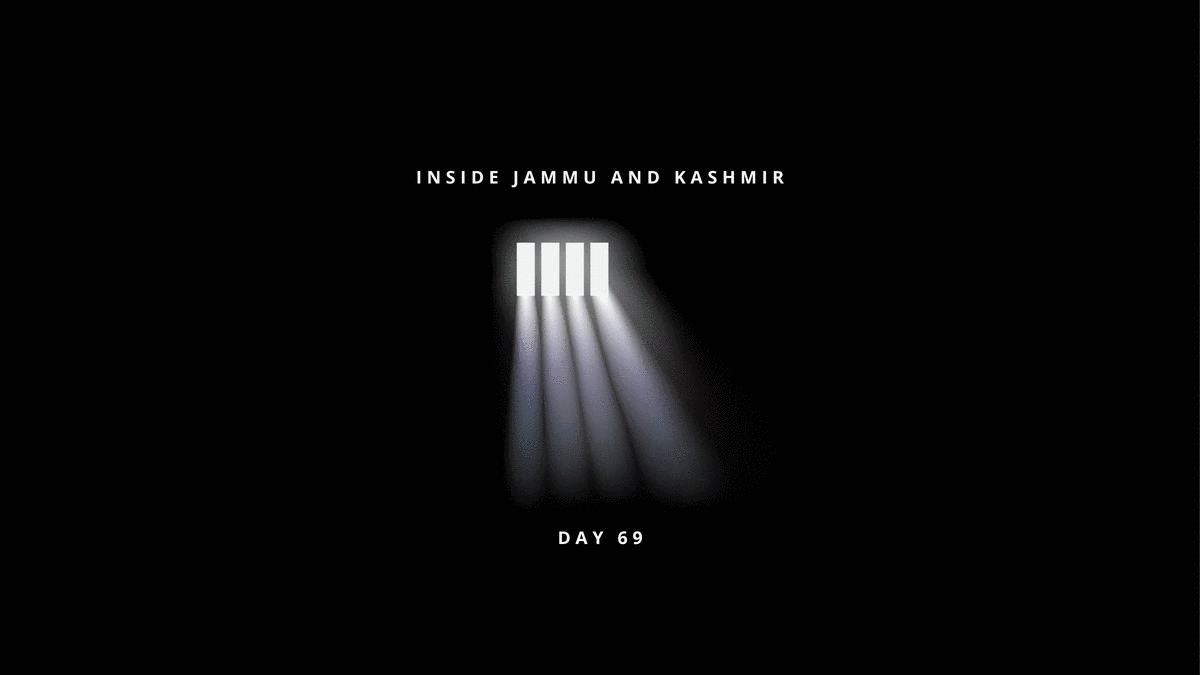
SRINAGAR, INDIAN-ADMINISTERED KASHMIR — Family members wade through endless check points before they reach Martyrs Park in downtown Srinagar, which has become a makeshift waiting room.
Nearby, Srinagar’s Central Jail is brimming with thousands of young men who have been arrested and detained since August 5 – the day India scrapped Article 370, ending the semi-autonomous status which Jammu and Kashmir, the nation’s only Muslim-majority state, has enjoyed since it was established 1949.
Family members wait in the park for their loved ones’ number to be called. When it is, they’ll be able to go in for a visit.
Showket Ahmed is waiting on a park bench. He and his other family members travelled 68 kilometers (42 miles) from Damhal, the village where they live, in hopes of visiting his brother, a student who was arrested on August 21. There is a large military presence in Damhal due to a rise in anti-government activity in the area.
Aamir Ahmed, Showket Ahmed’s brother, was charged with provoking other people to protest, according to the charge sheet, provided to Global Press Journal.
But Showket Ahmed says he’s sure that’s not the case.
“My brother is innocent. He is just a student,” he says.
There is no official data to confirm the total number of people detained, arrested or released since August 5. But police sources estimate more than 3,500 people have been detained so far.
Many of the detained are young men.
“Many other young boys were picked by the army in our area,” Showket Ahmed says. “I want my brother to be free.”
A policeman, who spoke on the condition of anonymity, told Global Press Journal that young men are often targets of raids and arrests because they make up the bulk of protesters and members of groups that have been known to instigate violence, like stone pelting, during other recent strikes and protests. Some of the detained are lodged in the Central Jail and others have been taken to jails outside Kashmir.
Rounding up and detaining thousands of people is being used as a preventative measure to avoid potentially violent strikes and protests, police say. In a similar attempt to curtail protests and the spread of misinformation, cell phone and internet services remain blocked in most of the state.
Using the Public Safety Act of 1978, which allows for the arrest and detention of citizens “in the interest of the security of the state,” police and army officials are detaining people who they say were mostly “stone pelters and miscreants,” or people who could or had instigated others toward violence.
People arrested under the Public Safety Act can be kept in detention for a maximum of two years without trial.
In July 2019, the Office of the United Nations High Commissioner for Human Rights released a 43-page report about the human rights situation in Indian-administered Kashmir. The report notes that “authorities in Indian-Administered Kashmir continue to use various forms of arbitrary detention to target protesters, political dissidents and other civil society actors.”
The Public Safety Act has also been used to arrest a few government officials, including Farooq Abdullah, a former Chief Minister of Jammu and Kashmir. He remains under house arrest.
While authorities say detentions have slowed down in recent weeks, families still gather in Martyrs Park.
Tajamul Islam, 22, was also picked from his home on August 21. His father, mother and brother are waiting in the park in hopes of visiting him.
Sara Bano, his mother, waits near the park’s gate.
“I am sitting close by as I cannot walk fast and do not want to waste a minute by sitting somewhere inside the park,” she says, referring to her arthritis. “I want to see my son. It has been a month and I have not seen him.”
Bano says she believes her son was arrested as a precaution because some of his classmates had recently joined in protest activities or joined anti-government groups.
“How does that prove my son is guilty? He is very young. They also say that he tried to provoke people to protest against the revocation of Article 370, which is not true,” Bano says.
Raihana Maqbool, GPJ, translated some interviews from Kashmiri to English.






